VM Ultra Wide Angle Lens ULTRA WIDE HELIAR 12mm II VM
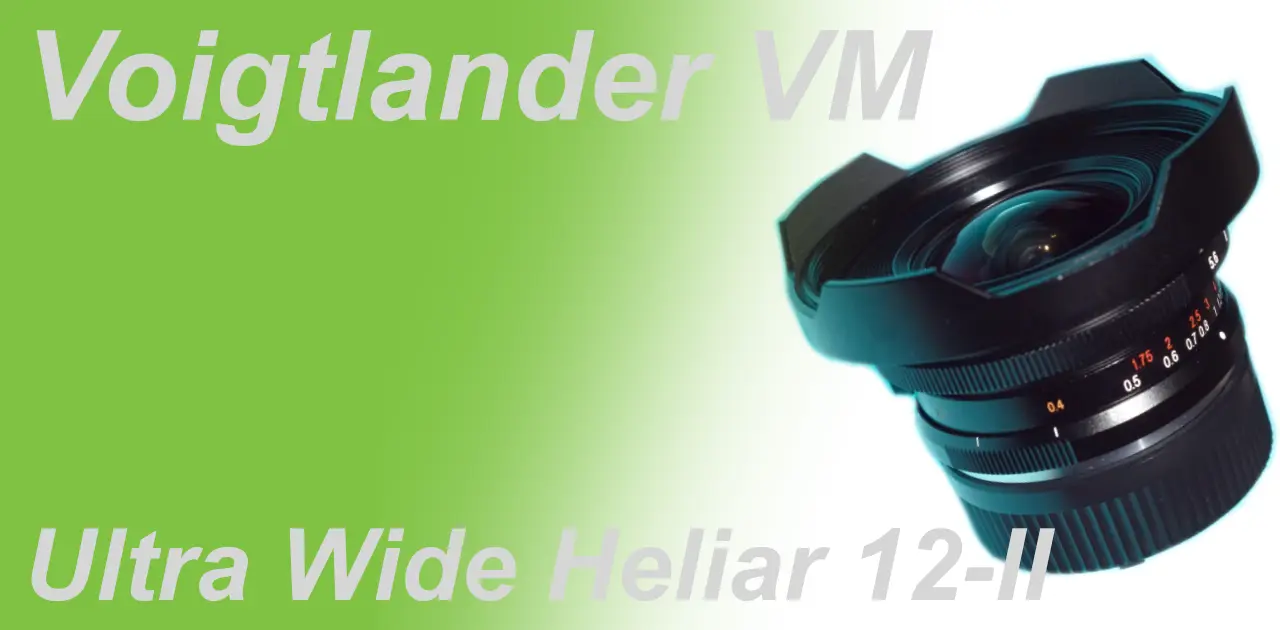
A review and photo examples of the Voigtlander ULTRA WIDE HELIAR VM 12mm F5.6 with the LEICA M8.2 and EPSON R-D1x.
- Please see the disclaimer regarding advertising here.
- Italicized links in the text are advertisement links that take you to other sites.
Table of contents

Gallery
The sample photos were taken with the LEICA M8.2 and EPSON R-D1x.
Review
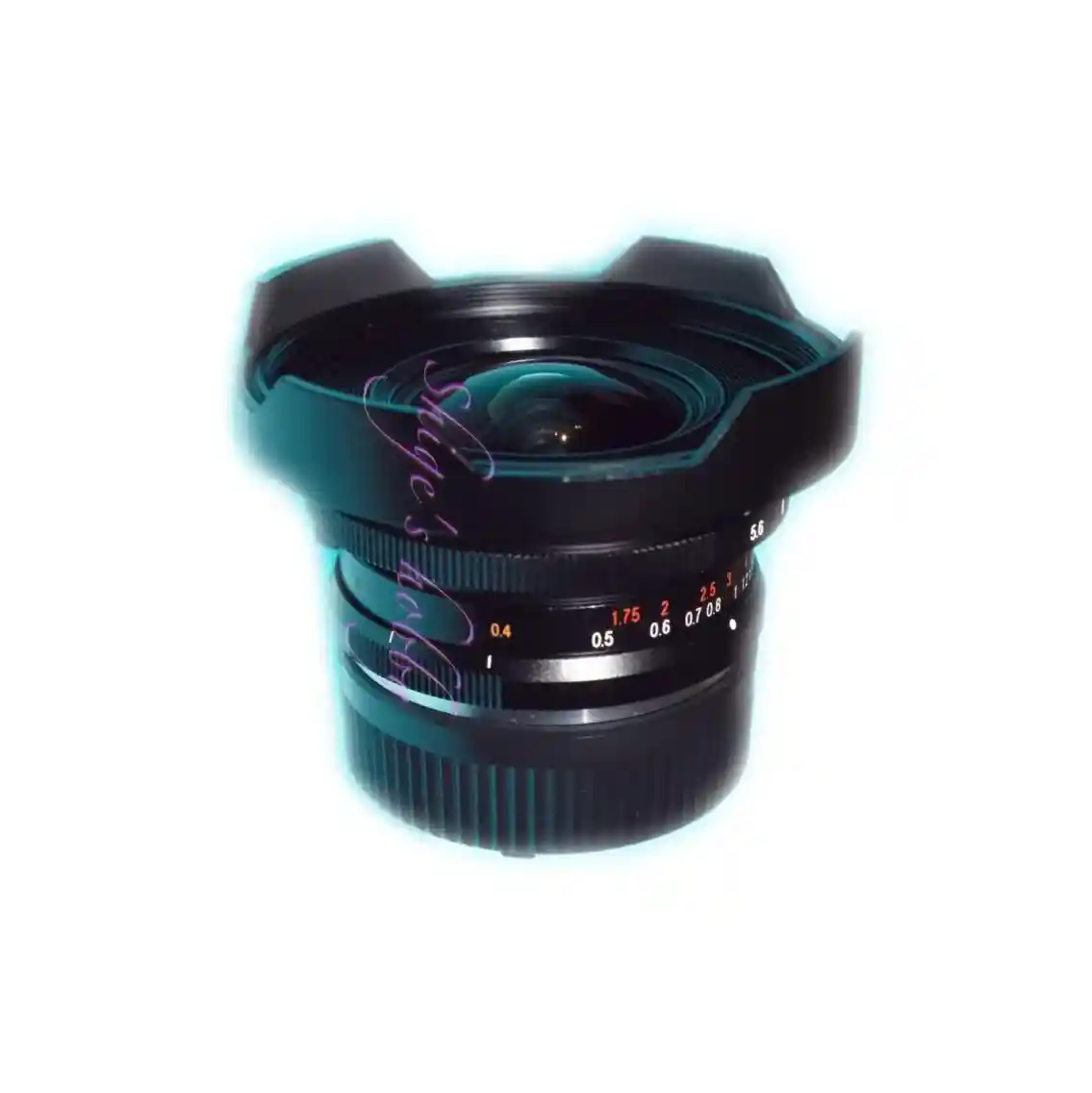
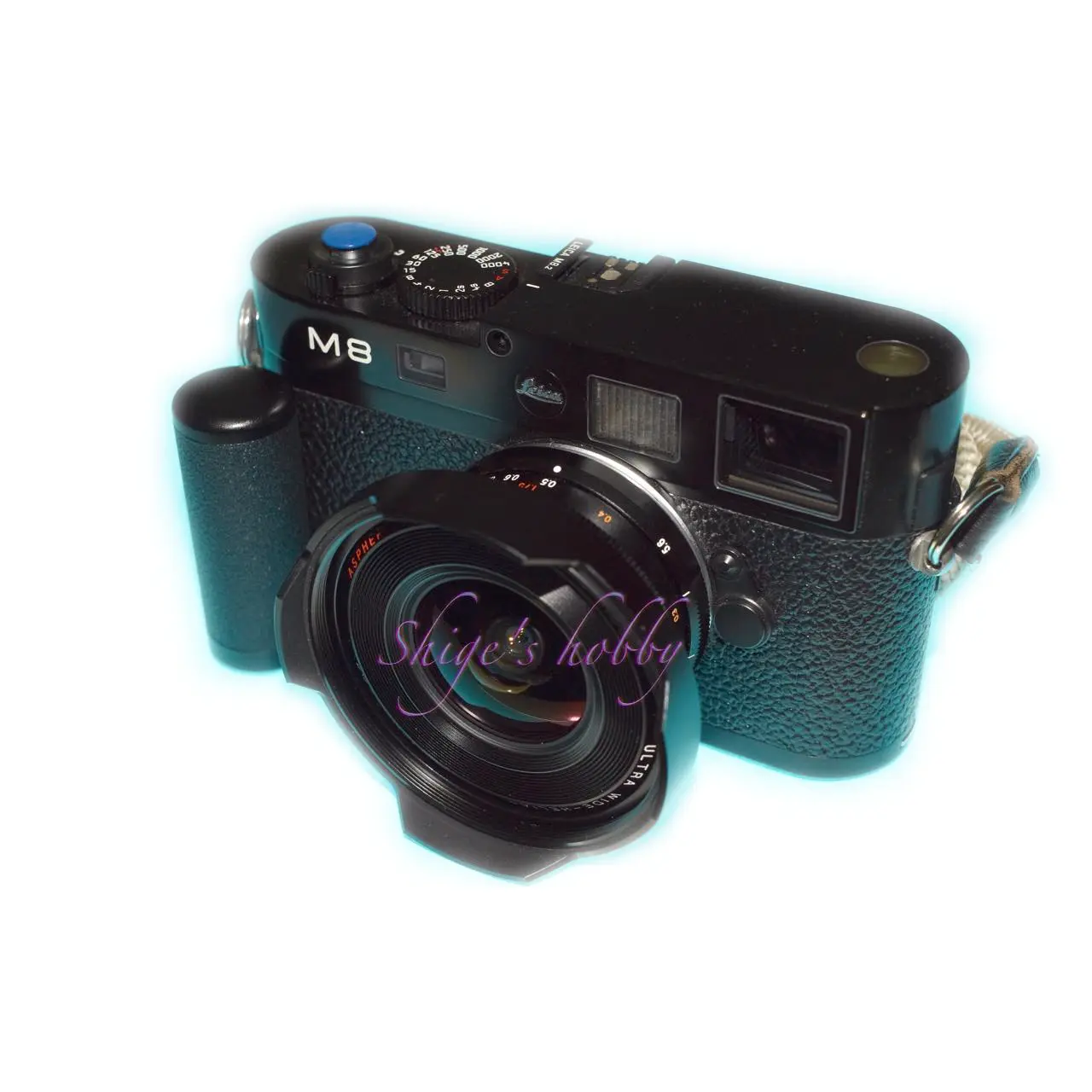
1.Overview
The Voigtlander Ultra Wide Heliar 12mm F5.6 is an ultra-wide-angle lens with a focal length of 12mm.
The lens consists of 10 elements in 8 groups, and the minimum shooting distance is 0.5m.
The lens mount is a Leica M-compatible VM mount, and it works with the rangefinder of a rangefinder camera up to 0.7m.
The total length of the lens is 42.5mm from the mount surface to the tip of the hood, and a 67mm filter can be attached without any options.
2.Usability
The ULTRA WIDE HELIAR 12mm F5.6 II VM is a lens with an updated design, with the mount of the ULTRA WIDE HELIAR 12mm F5.6 I L39 changed to the VM mount compatible with the Leica M.
The biggest difference from the original L39 version is that this second-generation 12mm is linked to the rangefinder of a rangefinder camera. This change makes it possible to set the focus accuracy more accurately than by eye when shooting subjects at a distance of about 0.7m to 2m, which is close enough to be shot at the maximum aperture of F5.6.
However, the original L39 version was physically limited to a minimum shooting distance of 0.3m, and the addition of this rangefinder linkage mechanism limited the minimum shooting distance to 0.5m. While the lens barrel can be as close as 0.3m, this second-generation lens is physically limited to a minimum of 0.5m, and the 0.3m and 0.4m markings engraved on the lens are a guide to the position where the focus will be achieved when using the depth of field.
Other than the above, the lens configuration and basic performance are the same as the L39 mount version.
The review of the L39 mount version is posted at the link.
The evaluation of the image quality is the same as the L39 mount version.
The sensor size of the LEICA M8 is smaller than that of the 35mm format, so the shooting range is 12*1.33=16mm, so I adjusted the shooting range using the HOLOGAN 16mm/COSINA ZEISS 15mm viewfinder for CONTAX G.
The viewfinder of the HOLOGAN 16mm is not so good, but it has a level, which was useful for ultra-wide-angle lenses.
The shooting range of the EPSON R-D1 is 12*1.5=18mm, so I used the CARL ZEISS 18mm viewfinder. This viewfinder is clear and looks good, and is one of the better wide-angle viewfinders.
3.Summary
In conclusion, to sum up the ULTRA WIDE HELIAR 12mm F5.6 II VM, it is a compact ultra-wide-angle lens that is compatible with the Leica M mount. It is a prime lens with good distortion correction, so there are no problems in practical use. Since the maximum aperture of the lens is dark, you need to be careful of camera shake in dark places.
Like the first generation, this lens is also sold at a low price second-hand, so it is a lens that allows you to easily enjoy the extraordinary focal length of 12mm.
Specification ,Study and more
The first 12mm was an L39 screw mount, but the second generation was changed to an M mount, and the third generation has been released. From the third generation, a Sony E mount version was also released, which has been improved to meet the digital age, such as shortening the minimum shooting distance and transmitting lens information to the camera.
As mentioned above, the minimum shooting distance for the L39 screw mount version is 0.3m, while for the VM version it is 0.5m.
The first Ultra Wide Heliar 12mm L39 screw mount version (hereinafter referred to as the first generation) can physically get as close as 0.3m, so it is more convenient to use with a mirrorless camera.
The front of the lens is wide open like a petal in order to screw a 67mm filter directly into the lens. It is a much larger lens than the previous model 12mm L39 screw mount version, which has the same lens configuration.
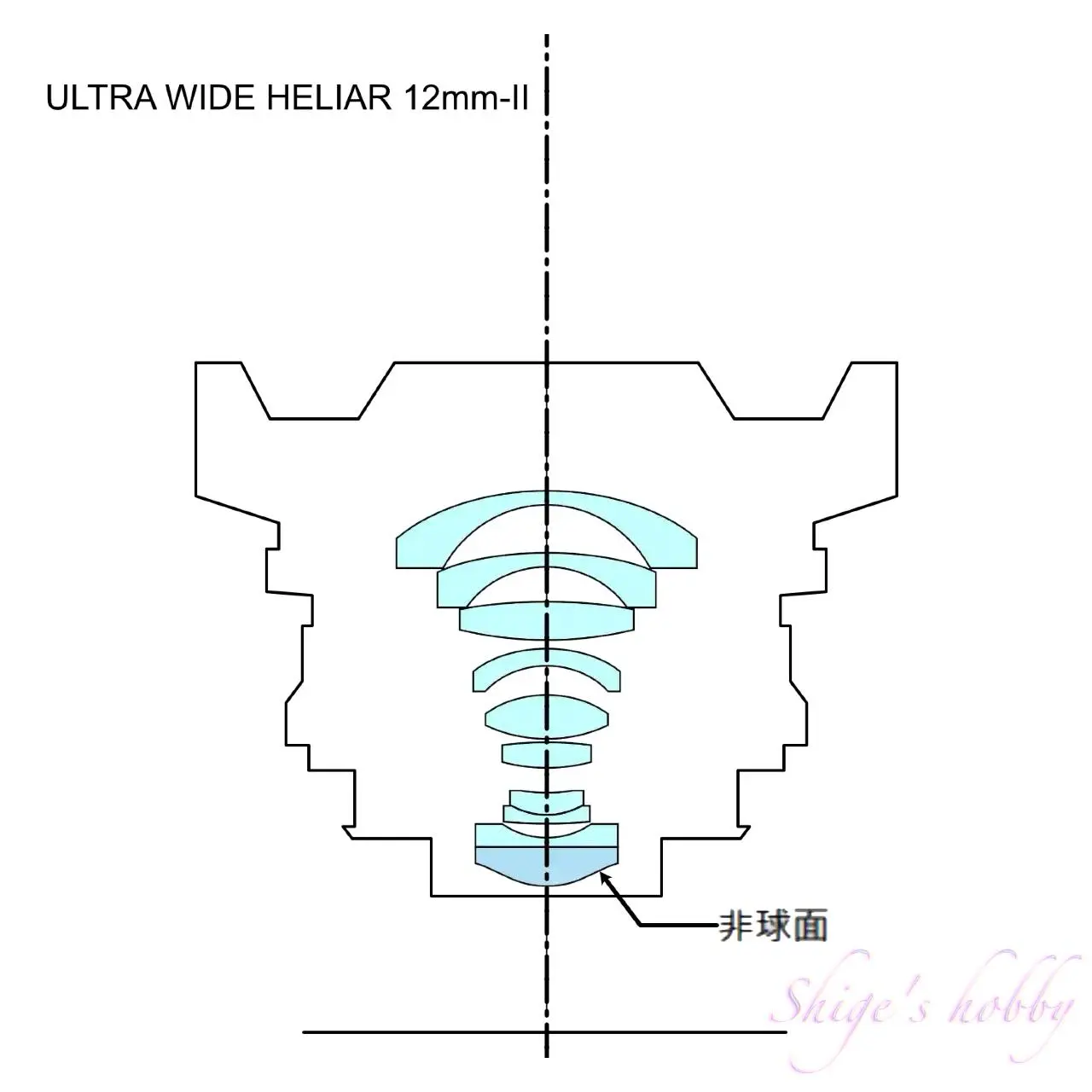
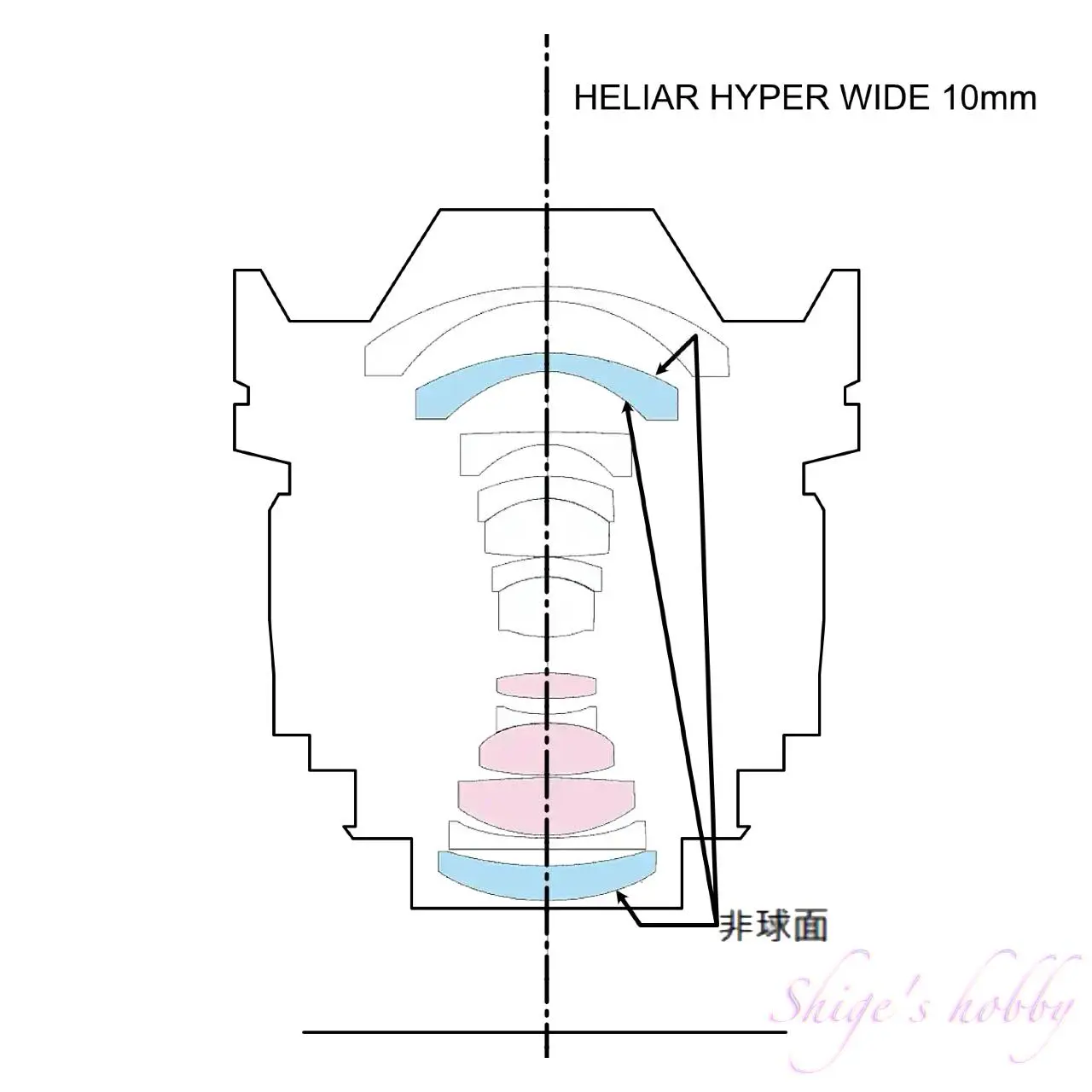
| Items | ULTRA WIDE HELIAR 2nd Generation | ULTRA WIDE HELIAR 3rd Generation | Heliar Hyper Wide 10mm |
| Focal length(mm) | 12 | 12 | 10 |
| Max aperture | 5.6 | 5.6 | 5.6 |
| Min aperture | 22 | 22 | 22 |
| Aperture blade | 9 | 10 | 10 |
| Lens Construction | 10 elements in 8 groups, 1 aspherical lens | 12 elements in 10 groups | 13 elements in 10 groups |
| Min distance(m) | 0.5 (rangefinder coupled 0.7m) | 0.5(VM) 0.3(E) | 0.5(VM) 0.3(E) |
| Lens mount | VM | VM | VM |
| Lens length(mm) | 42.5 | 58.4 | 58.7 |
| Lens Max diameter(mm) | 74.6 | 64.8 | 67.8 |
| Filter Size(mm) | 67 | Cannot be installed | Cannot be installed |
| Lens hood | Lens built-in | Lens built-in | Lens built-in |
| Weight(g) | 230 | 283 350(E) | 312 375(E) |
| Release date | 2010.3 | 2016.9 | 2016.7 |
| Price(Yen/No-tax) | 89,250 | 115,000 | 135,000 |
Reference links
Update history
- 2025.7.16
- 2024.12.25
Affiliate links
- Please see the disclaimer regarding advertising here.
- Italicized links in the text are advertisement links that take you to other sites.

Leave a Reply